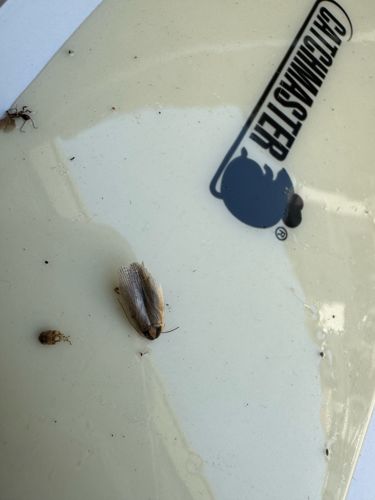American Cockroach
Scientific Name: Periplaneta americana
Order & Family: Blattodea, Blattidae
Size: 35-50 mm (1.4-2 inches)

Natural Habitat
Prefers warm, humid, and dark environments, often found in basements, sewers, drains, crawl spaces, kitchens, and bathrooms. They can also live outdoors in sheltered areas.
Diet & Feeding
Opportunistic omnivores, eating almost anything organic, including decaying matter, starches, sweets, grease, meat, pet food, and even non-food items like glue, hair, and book bindings.
Behavior Patterns
The American cockroach is primarily nocturnal, hiding in cracks and crevices during the day and becoming active at night to search for food and water. They are fast runners and can fly, especially males, although they prefer to scuttle. They are highly adaptable and can survive for a long time without food but only about a week without water. They reproduce quickly, with females producing many egg cases (oothecae) in their lifetime.
Risks & Benefits
Risks: Considered pests, they can contaminate food and surfaces with bacteria (like Salmonella and E. coli), allergens, and protozoa. Their presence can trigger asthma and allergies. Benefits: In natural ecosystems, they contribute to the decomposition of organic matter.
Identified on: 8/11/2025